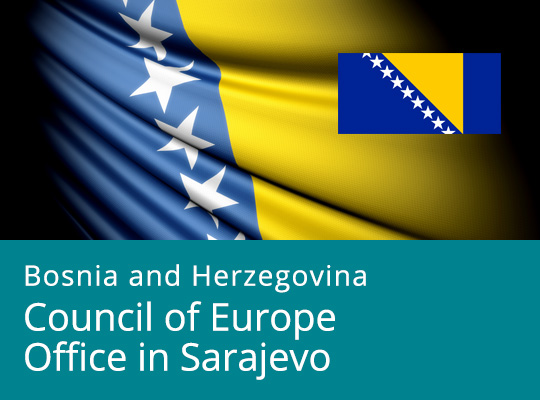Human rights education within university is closely related to raising the culture of human rights because young lawyers promote values such as democracy, tolerance, multiculturalism, equality and non-discrimination. Ethical values lead to sensitization to topics in the field of human rights, to the reduction of corruption in the judiciary, to the promotion of volunteer and pro bono work, as well as to advocacy for equal and efficient access to justice. In this regard, the Council of Europe launched a legal clinic on human rights for 36 students at law faculties in Banja Luka and Zenica, which will last during the winter semester of the academic year 2022/2023.
The Council of Europe points at the importance of the right to education in the field of human rights, especially the Recommendation of the Committee of Ministers from 2019, which largely represents the foundation of the basic principles on which education in the field of human rights should rest, and it refers to three important segments : 1) raising the level of knowledge; 2) improvement of skills; and 3) awareness raising in favour of the promotion and protection of human rights.
Accordingly, the Council of Europe produced an Analysis of the Study of Human Rights at Law Faculties in Bosnia and Herzegovina (available in local language), which resulted in ten recommendations, among others:
- Introduction of the Human Rights subject at law faculties
- Support for professional deelopment of teachers who teach the subject of human rights
- Organization of Moot court exercises
- Teachers should be encouraged and motiated to use HELP courses within their subjects, or as an extracurricular actiity.
- Organisation of legal clinics represent an important method of learning, which is oriented not only towards practical work, but also towards raising the awareness of students and their work in the field of policies.
The activities were carried out within the project “Initiative for Legal Certainty and Efficient Judiciary in Bosnia and Herzegovina – Phase III”, implemented by the Council of Europe thanks to the voluntary contribution of the Government of Norway.



